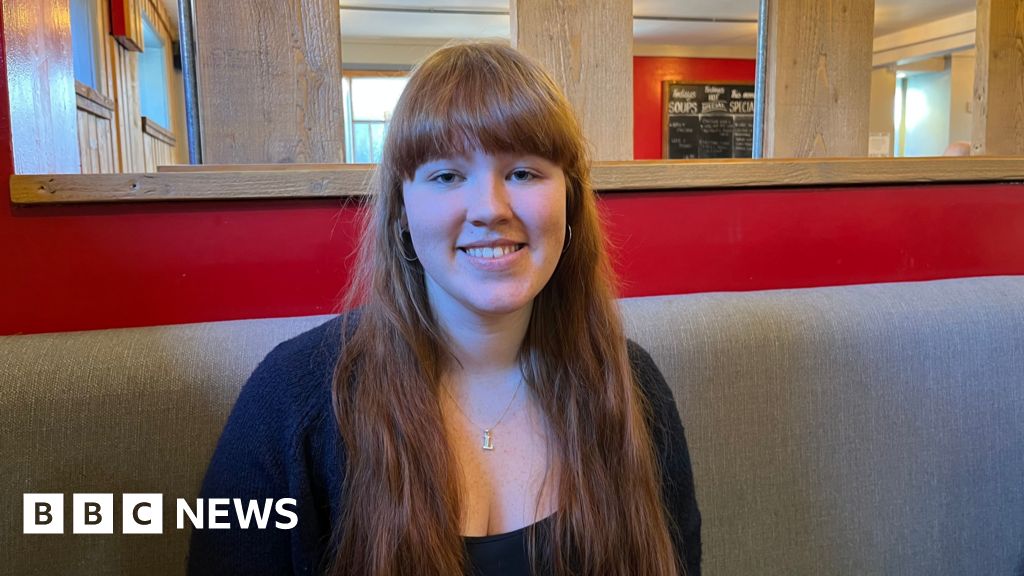ARTICLE AD BOX
Sexual harassment caught on hidden camera in Kenya
By Africa Eye and Panorama teams
BBC News
Sexual exploitation has been uncovered on tea farms that supply some of the UK's most popular brands, including PG Tips, Lipton and Sainsbury's Red Label.
More than 70 women on Kenyan tea farms, owned for years by two British companies, told the BBC they had been sexually abused by their supervisors.
Secret filming showed local bosses, on plantations owned by Unilever and James Finlay & Co, pressuring an undercover reporter for sex.
Three managers have now been suspended.
Unilever faced similar allegations more than 10 years ago and launched a "zero tolerance" approach to sexual harassment as well as a reporting system and other measures, but a joint investigation for BBC Africa Eye and Panorama found evidence that allegations of sexual harassment were not being acted on.
The BBC's Tom Odula spoke to women who worked on tea farms run by both companies. A number told him that because work is so scarce, they are left with no choice but to give in to the sexual demands of their bosses or face having no income.
"I can't lose my job because I have kids," said one woman.
Another woman said a divisional manager stopped her job until she agreed to have sex with him.
"It is just torture; he wants to sleep with you, then you get a job," she said.
One woman also told the BBC that she had been infected with HIV by her supervisor, after being pressured into having sex with him.
Some female workers on tea farms said they have no choice but to give into sexual demands of their bosses
To gather more evidence about the allegations of sexual abuse taking place, the BBC recruited undercover reporter Katy - not her real name - to work on the tea plantations.
In one instance, Katy was invited to a job interview with a recruiter for James Finlay & Co called John Chebochok. The interview turned out to be in a hotel room.
Mr Chebochok, who has worked on Finlay's plantations for more than 30 years, first as an estate manager and then as the owner of a contracting company, had already been flagged as a "predator" by a number of women who spoke to the BBC's Tom Odula.
Katy was pinned against a window by Mr Chebochok and asked to touch him and undress.
"I'll give you some money, then I'll give you a job. I have helped you, help me," he said.
"We'll lie down, finish and go. Then you come and work."
Katy made it clear she did not consent. Eventually he gave up and a member of the production team - stationed nearby for her safety - made a phone call to give her an excuse to leave.
"I was so scared, and so shocked. It must be really difficult for the women who work under Chebochok," said Katy.
James Finlay & Co said Mr Chebochok was immediately suspended after the BBC contacted the company. The company said it also reported him to the police and was now investigating whether its Kenyan operation has "an endemic issue with sexual violence".
Katy also experienced sexual harassment when undercover at a farm, which was at the time run by Unilever.
She was invited to an induction day where a divisional manager called Jeremiah Koskei gave a speech to his new recruits about Unilever's zero-tolerance policy towards sexual harassment.
However, he then invited "Katy" to meet him in a hotel bar that evening and tried to pressure her into having sex with him - suggesting they went back to his compound together.
Katy later said: "If my whole life really was pegged on this opportunity, I can only imagine how that encounter would have unfolded."
Katy was assigned to the weeding team - it is gruelling work, six days a week, and many women ask to be moved.
The supervisor there, Samuel Yebei, asked her for sex in exchange for lighter duties.
Text exchange between Katy and her supervisor, when she was trying to arrange a meeting to discuss lighter duties
When Katy reported the behaviour to one of Unilever's sexual harassment officers, she was told: "Stand by your principles. Don't give your body in exchange for a job."
Despite following up to find out what action was being taken against her superiors, she received no response.
Unilever says it was "deeply shocked and saddened" by the allegations. The company sold its operation in Kenya while the BBC was secretly filming.
The new owner, Lipton Teas and Infusions, says it has "immediately suspended the two managers", and ordered a "full and independent investigation".
Jeremiah Koskei did not respond to our request for comment and Samuel Yebei denies the allegations against him.
James Finlay and Co supplies Kenyan tea to Sainsbury's and Tesco supermarkets, as well as Starbucks.
In response to the BBC investigation, Sainsbury's said: "These horrific allegations have no place in our supply chain."
Tesco said it takes the allegations "extremely seriously" and is in "constant dialogue" with Finlay's to ensure "robust measures" are taken.
Starbucks did not provide a statement.
Have you been affected by the issues in our investigation into sex for work? Do you have any information or stories to share? If you would like to share your experience with BBC Africa Eye or BBC Panorama, please submit your message below. There is an option to remain anonymous, if you'd prefer to.
Due to the volume of messages we receive, we cannot respond to everyone but we do appreciate every response:
If you are reading this page and can't see the form you can email us at HaveYourSay@bbc.co.uk. Please include your name, age and location with any submission.

 1 year ago
38
1 year ago
38








 English (US) ·
English (US) ·